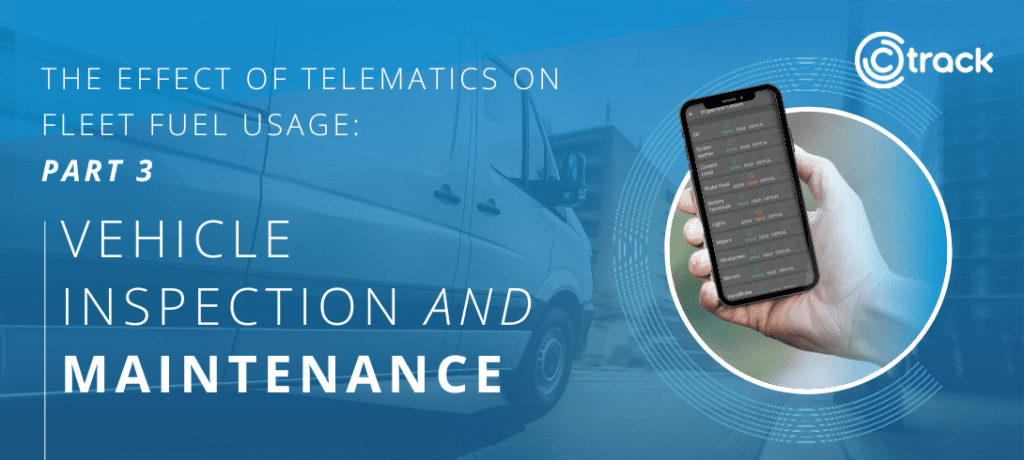
Vehicle inspection and maintenance #BeyondTracking
October 28, 2022

October 28, 2022
The condition and maintenance of a vehicle is a significant contributor to fuel consumption. Conducting periodic maintenance ensures that the vehicle performs optimally to deliver the best possible results. Given the current economic conditions, companies are doing what they can to curb spending. Still, the upkeep of fleet vehicles should always be addressed, as the initial savings would be overshadowed by the long-term costs, considering how even minor issues can lead to excessive fuel usage and wasted money.
It is important to consider that the condition of a vehicle’s tyres will play a role in its efficiency and, ultimately, in its fuel usage. The quality and condition of a tyre affect what is referred to as the “Tyre Rolling Resistance” of the truck. Tyre Rolling Resistance is the energy that the vehicle needs to allocate to the tyres to maintain its speed and movement, the energy spent to keep a tyre rolling.
Tyres are typically put through harsh conditions under ideal circumstances, and we must admit that South African roads can be far from ideal. Tyres change form while driving, so the tread interaction with the road surface is critical. Key factors that affect the Tyre Rolling resistance are aerodynamics, weight, pressure, and tread.
The Tyre Rolling Resistance can impact the vehicle’s fuel consumption and CO2 emissions by up to 30%. This is influenced by the weight put on the vehicle, although these machines are made to carry heavy loads, they should not be overloaded. The wheel alignment also plays a significant role in fuel consumption. When vehicles are poorly maintained, it increases the drag on the vehicle, which can increase fuel consumption by up to 18.5% and negatively impact the life of the tyre.
The engine is the heart of a vehicle and needs to be monitored and checked to see if it’s pumping correctly. Regular engine services ensure that it’s running smoothly and, more importantly, efficiently. Neglected engines eventually will lead to higher fuel usage of up to 4%. It is also important to consider that incorrect maintenance could lead to higher fuel usage and that these specialised vehicles require specialised service from authorised mechanics. Incorrect maintenance will initially save money but lead to higher CO2 emissions, damaged filters and engine wear and tear, leading to an overall reduction in the life cycle plan for the vehicle. Early vehicle replacements bring about lower resell values and much higher CPK costs. These costs go directly to the bottom line, resulting in less profit.
Ctrack telematics can supply fleet managers with the information to make best-practice decisions. As part of the Ctrack Crystal app, drivers can complete pre-vehicle inspections, where they can upload photos of any issues directly to the cloud for managers to view. The inspection feature provides a valuable data stream for decision-makers in identifying problems and ensures they stay on top of services, maintenance, and license renewals. Data can pinpoint where engines start to decline and when services are needed.